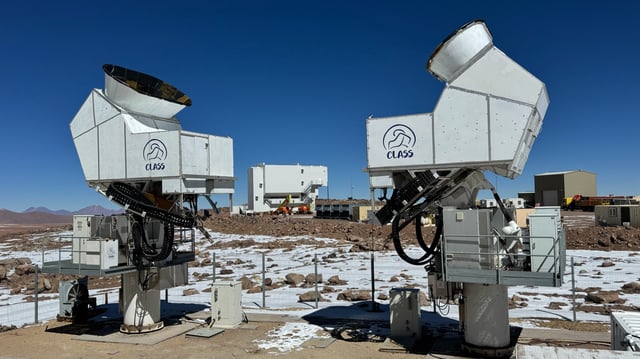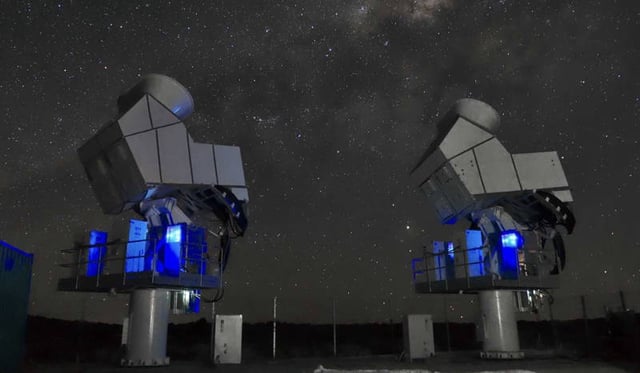Overview
- The CLASS project used Earth-based telescopes in Chile’s Atacama Desert to measure polarized microwave signals emitted during the Cosmic Dawn.
- This marks the first successful ground-based detection of cosmic microwave background polarization from early stars, a feat previously achieved only by space observatories like WMAP and Planck.
- Researchers isolated the faint reionization signal by cross-referencing CLASS observations with Planck and WMAP data to filter out atmospheric and terrestrial interference.
- The findings, published in The Astrophysical Journal, demonstrate the telescopes’ unique sensitivity to the subtle “cosmic glare” created by light scattering off ionized hydrogen from the first stars.
- Ongoing analysis of CLASS data aims to refine understanding of dark matter characteristics and neutrino behavior through more precise measurements of the early universe.

